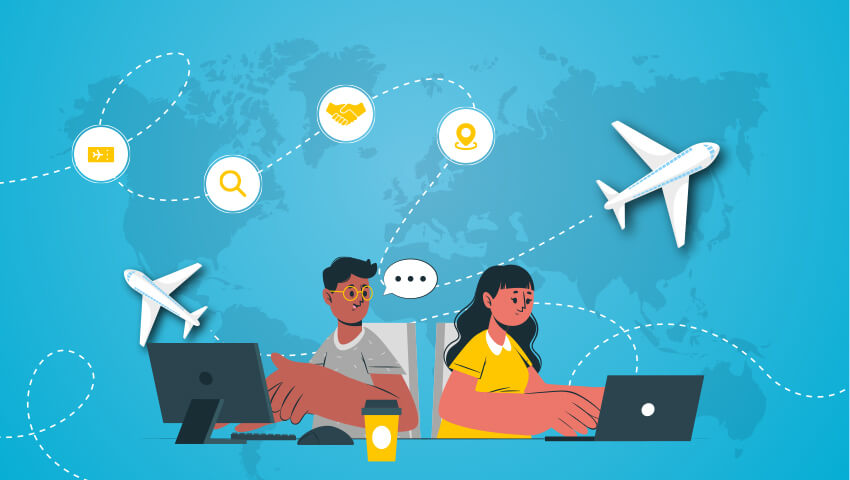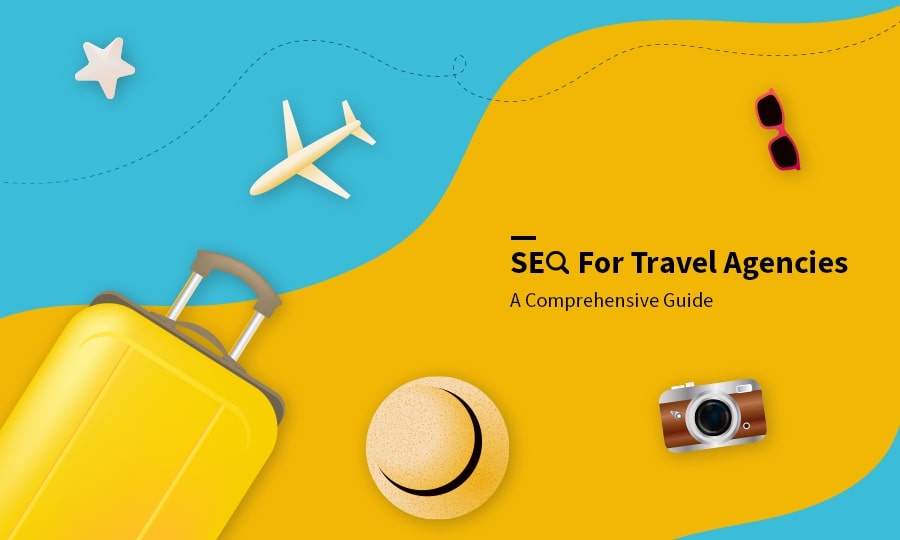
How Travel Portals Affect Travel Industry Future
In the past few years, the travel business has undergone incredible change. Among the several changes this sector undergoes, travel websites—which give consumers online-based access to search, plan, and buy travel services, including flights, hotels, and holiday packages—have been rather popular over the years. Fast turning into the center for all passengers, these portals are helping to change travel experience and planning by themselves. We will examine in this blog how travel portals are changing the travel business.
Travel Portals: What are they?
Travel portals are, all things considered, venues offering all kinds of travel options from one spot. Users could search for choices, compare pricing, read reviews, or book all in one virtual environment where they offer a lot of travel data aggregated from airlines, hotels, car rental companies, and other service providers. They are found on several devices, including tablets, computers, and cellphones; therefore, organizing a vacation is now simpler and can be done anywhere.
Development of Travel Portals
The fast-increasing internet usage and smartphone technology have helped travel websites flourish. Online booking has evolved as favored for holiday and business travel planning the more individuals have access to the internet and cellphones. According to current research, more than seventy percent of travelers today plan and book their vacations online. Consequently, the market for conventional travel agents is quite declining.
In addition, what attracts both experienced and first-time visitors is the ease and accessibility of travel sites. With just a few clicks, one can browse through a wide range of options on flights, hotels, and activities. Travel portals enable one to make real-time travel plans with flexible options that would not have been possible with more conventional techniques.
Travel Portals Changing the Travel Sector
1. Easy access and convenience
Convenience is maybe one of the most valuable benefits travel websites provide. Already gone are the days when one would have to make phone calls or visit various websites to locate and reserve the needed services. People can now, instead, check availability, examine reviews, compare prices, and even reserve on one website. This degree of simplicity saves time and removes most of the aggravation related to travel planning.
Travel portals are also available around the clock, which lets the visitor schedule his or her trip at any moment of the day, lunch break, or midnight. This has eliminated the conventional business hours' restrictions and changed people's travel planning.
2. Cost openness and competitive pricing
By being more open about the rates, the travel portals are also altering the travel business. To get the greatest deals, visitors have the simple choice of contrasting costs for flights, hotels, auto rentals, and tours. Usually aggregating rates from several providers, portals provide consumers with a wider selection of choices.
Many of these travel websites provide special offers and discounts to visitors, therefore enabling them to obtain competitive prices not otherwise available from traditional booking agents. Travel portals also offer a range of pricing strategies that fit diverse budgets and tastes, including last-minute deals and bundles, thereby motivating more individuals to travel.
3. Unique Travel Experience
Personalized travel portals are going to grow more and more depending on technological development. Using the approach of artificial intelligence and machine learning, they are most likely to recommend decisions based on personal propensity or surfing frequency or past experience. For instance, when some individual frequently books flights towards beaches or is accustomed to staying in luxury hotels, then a similar trip may be recommended on the site.
Customized travel experiences go beyond mere destination selection. Certain websites have been made so users may make their own itinerary by selecting activities, lodging, and transportation to produce a very unique trip schedule. Travel websites have become even more appealing to modern visitors who enjoy unusual, one-of-a-kind vacations since this aspect of organizing a customized trip appeals to them.
4. Combining User-generated Content with Notes of Review
Online reviews cannot be understated in how much they impact travel companies. Travel websites now provide review and rating systems from past clients to help users choose the best booking. TripAdvisor and Booking.com are two excellent travel websites where users may extensively comment on hotels, flights, etc.
By means of integrated travel portals, user-generated content improves the transparency of the system; this helps travellers to be sure of the experiences of other people around them. Customers who are ready to book certain highly ranked services with lots of positive comments show higher trust in travel websites. Travel agencies use the produced material to enhance their offerings; they also make recommendations based on what other people have liked using this very material.
5. Travel internationally and have global reach.
Travel portals have simplified domestic travel and offered avenues for foreign travel. These services let users nearly anywhere in the globe schedule flights and lodging. This has then raised more worldwide travel prospects than ever. Apart from that, most travel websites have multilingual and multi-currency tools to enable users to negotiate foreign bookings free from language or money constraints.
The simplicity of access to global travel choices from one platform has improved international travel volume. From the convenience of their homes, travelers may quickly arrange excursions overseas, reserve local tours, and even investigate cultural events. The travel business now has far more reach because of this degree of accessibility.
6. Sustainable Travel: Environmental Sustainability
Travelers are looking for greener, more sustainable choices for travel as knowledge of green issues rises. More and more venues adopt ecologically responsible travel, which helps satisfy the related demand for greener holidays, eco-friendly hotels, and so on. Filters of several locations allow consumers to search for accommodation based on carbon-neutral flights or energy-efficient practices.
Including sustainability into the booking process benefits the surroundings as well as the travel firms. Travelers are more inclined to choose platforms that promote and enhance sustainable activity when knowledge of consequences on their surroundings increases. Travel sites, in turn, promote more environmentally friendly, responsible travel, therefore influencing the development of the sector.
7. Smartphone Revolution
Most travel websites are mobile-friendly as more people use smartphones, so they may make reservations while on the run. Traveler interaction with the travel portal has been transformed by a mobile-first approach. Travelers may search and reserve their flights, lodging, and activities today whether they are commuting, standing in line, or on their trip. Booking has become much more dynamic since mobile apps offer push notifications, real-time changes, and even immediate change booking possibilities.
The mobile revolution also lets travel websites improve customer service with fast support via live chat or chatbot capabilities. It increases general customer satisfaction since it lets visitors ask for help with their bookings or handle problems right away.
Conclusion
Travel portals are redefining not only how individuals schedule but also the direction the travel business will take. They provide global reach, pricing transparency, ease, and tailored advice. The vacation experience now revolves upon these sites almost entirely. For travelers, they offer a one-stop solution since they simplify the booking procedure and help to schedule both business and leisure travels.
It will only get more complex, and the travel portal will keep providing more and better-selected experiences and tools—clearly a future entirely digital. From mobile-first solutions to sustainability programs, it is revolutionizing travel and bringing in an era of accessible, quick, and customized travel for everyone.
These creative ideas that have streamlined, opened, and made more fascinating the planning process for vacations in a culture even more linked than ever will define travel even more.
Read Also
Social Media Changing Travel Decisions: Views & Patterns

 Start your Travel Business with Our 7 Day Free Trial Website!
Start your Travel Business with Our 7 Day Free Trial Website!





